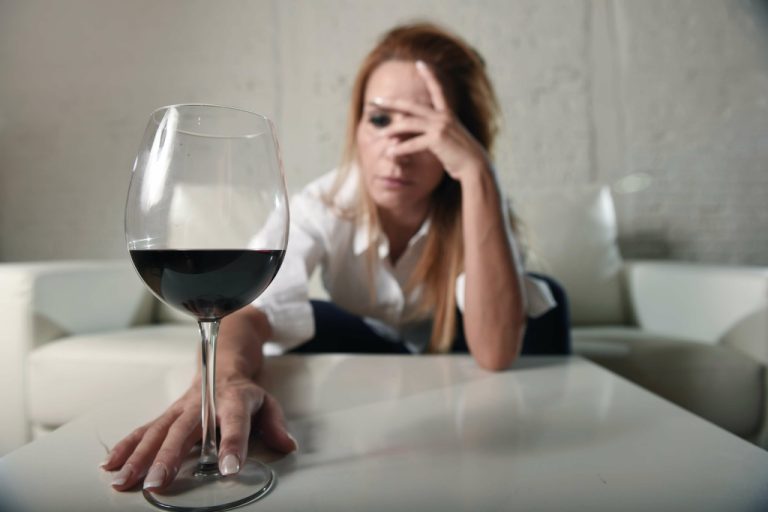One study found that Brits who abstained for a Dry January drank less in the six months afterward. Being Sober Curious means exploring sobriety and drinking less—not from a place of restriction but from a place of curiosity. It’s not about following strict rules or labeling yourself; it’s about asking questions and making intentional choices about alcohol. From zero-proof wine and craft mocktails to wellness events and sober community circles, there’s a growing wave of options that support clean, connected living without the booze.
They prioritise mental health
💙 Awaken to your full potential by Saying Yes to Life and seeing just how beautiful life can get when the pressure to drink falls away. You can also join the Sober Curious Book private Facebook group to connect with thousands of individuals who are actively reevaluating their relationship to alcohol in a safe, non-judgmental space moderated by Ruby. These drinks are also becoming increasingly popular among women who are pregnant or breastfeeding.
Create new habits
- This growing trend encourages a grace-filled, judgment-free approach that prioritizes freedom, presence, and faith-driven values.
- Susan G. Komen also finds that alcohol consumption has been linked to an increased risk of breast cancer, as it can raise oestrogen levels and contribute to hormone-sensitive cancers.
- The more information you read on the benefits of cutting back and tips on how other people are doing it, the more motivated you will likely become to dive in.
- Another social club member, Kathy Kuzniar, says she used to obsess over whether there was enough wine in the house.
Social media is full of sober communities that share funny, relatable, and uplifting content. In real life, more people are creating new habits, like swapping bar nights for early hikes, morning yoga, or creative hobbies. You might even discover that the things you thought you enjoyed, like staying up way too late, were only tolerable with a drink in hand. As sober curious Dr. Lipshie puts it, having one drink doesn’t mean you’ve failed. It’s being intentional about your choices and learning what feels right for you.
- Learn the physical and mental health effects of smoking, why it’s so hard to quit, and how you can get the help you need to quit smoking for good.
- The no and low-alcohol category is expected to grow consistently, with total volume consumption projected to increase by over 31% across multiple countries by 2024.
- Willoughby also encourages you to reflect on what you want your future to look like, as this could allow you to work out how changing your drinking could help you achieve that goal.
- Get professional help from an online addiction and mental health counselor from BetterHelp.
- Sober Curious author Ruby Warrington talks to all kinds of folks about their relationships to booze, as well as how to navigate life as a non-drinker in a world that loves to get wasted.
What Does It Mean to Be Sober Curious and Should You Give It a Try?

The movement encourages people to examine how much, when, and why they drink alcohol. By focusing attention on health and well-being, engaging in SC approaches may provide opportunities to help people make informed decisions about their drinking behavior. Additionally, a shift in social norms and the availability of alternative options have allowed the sober curious movement to gain momentum.


Stay close to family and friends while getting the support you need. Chronological age is measured by your birth date, but biological age measures how old your cells are. The more you drink, the more difficult it is for your cells to regenerate and repair themselves. “If you only get pressure, then there may be tough choices to make about your peer group,” says Hochman.
- From tailgating at sporting events and celebrating weddings to attending happy hours and networking events, we celebrate many of life’s greatest events with champagne, wine, beer, and cocktails.
- “Excessive drinking was responsible for 1 in 10 deaths among working-age adults aged years,” the CDC found.
- Taking a break from alcohol for a certain length of time is also a good way to evaluate how your body feels without alcohol.
It’s been linked to increased risks for cancer, liver disease, poor sleep, weight gain and more. As awareness of these effects grows, more people are redefining what health and a balanced approach to alcohol can look like. If you’ve ever heard of the term “sober curious,” you may be wondering how it’s different from month-long sobriety challenges like Dry January or Sober October or even being completely sober. But living a sober curious lifestyle is different, and here’s why.
National Institute on Alcohol Abuse and Alcoholism Trainees Host Research Symposium
He welcomes to Sans Bar people who are in recovery and those just curious about the sober life, as long as they are substance free when they arrive and while they’re there. He became a substance abuse counselor to help others but found that being in recovery was often really lonely. Chris Marshall is a certified substance abuse counselor and the founder of Sans Bar, a venue for “the nightlife experience” without the alcohol, in Austin, Texas. They’re part of a sober social club, made up mostly of women in https://dev-marcusdispatch.pantheonsite.io/signs-that-an-alcoholic-is-drinking-again-has/ their 30s who want to have fun and make friends without alcohol. If you rely on alcohol to deal with stress or anxiety, replacement tools will be essential. For example, someone with social anxiety might be terrified to attend a social gathering without liquid courage.
Taking a break from booze has tons of benefits
“We’ve created this false dichotomy around the role that alcohol plays in our lives,” Allen previously told USA TODAY. “Sober curiosity” is essentially a movement to rethink the role of alcohol in one’s life. In spite of the increased emphasis on wellness over the past decade or so, statistics show that alcohol is still a widely used substance. According to 2021 numbers, almost 30 million Americans aged 12 and up had an alcohol use disorder in the past year. Even for those who are not addicted, drinking can still lead marijuana addiction to hangovers, extra weight gain, or overall malaise. There are also potential interpersonal benefits to reducing your alcohol consumption.
